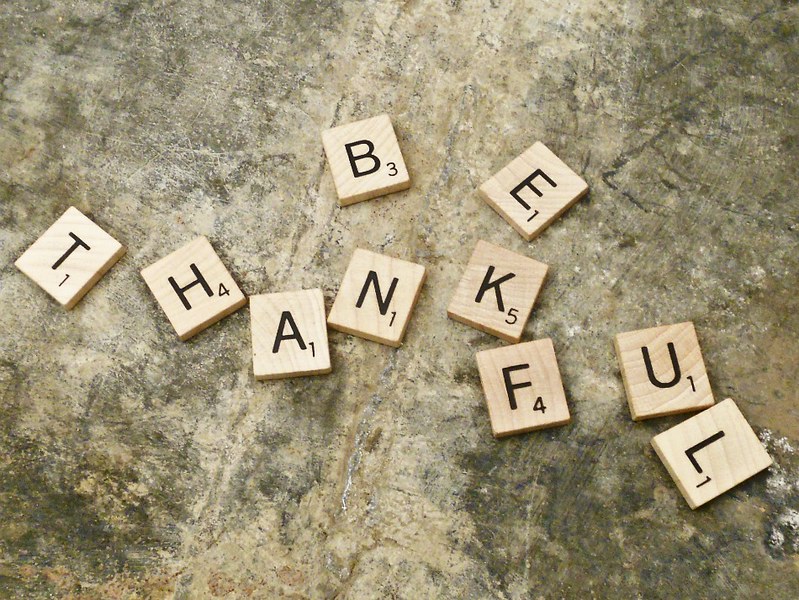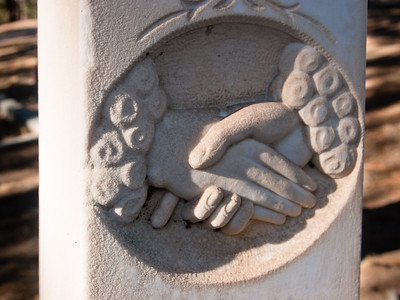Archive for November, 2024
I’m Thankful!
 How often do you stop what you’re doing, calm yourself, quiet your mind, and think about what you’re thankful for?
How often do you stop what you’re doing, calm yourself, quiet your mind, and think about what you’re thankful for?
To me, thankfulness is about what I have. I have a family I love and they love me, and for that I am thankful. First and foremost, front and center, family is the first thing that comes to me when I think about what I have. I’m thankful for my family.
I also have my health, and I am thankful for it. Funnily, as I get older and recognize my body is changing, it helps me appreciate the health I still have. Sometimes I get frustrated because I can’t do everything I used to do, but I can still do a lot. And most of the time I’m thankful for the health I have.
I am thankful for the time I have. With the kids no longer in the house, I have more quiet time which I value. I appreciate my quiet time more after something comes up and I don’t have as much as I’d like. Sometimes I complain when things come up and I have less quiet time, but I have nothing to complain about because I have enough. After I get over myself, I am more thankful for my quiet time. And, secretly, I wish the kids were back in the house and I had less quiet time. Don’t tell anyone.
I’ve found that my thankfulness is amplified when I tell people about it. When I tell people I’m thankful for their friendship, I’m doubly thankful – once because I remind myself and once because my thankfulness is appreciated. The same thing goes when I tell someone I’m thankful for something they did.
Why not stop what you’re doing, calm yourself, quiet your mind, and think about what you’re thankful for? And why not double the fun and tell someone about it?
You can generate as much thankfulness as you want. And if you give it away, you can always make more. So why not give away some thankfulness to someone you are thankful for? And why not make more and do it again?
Happy Thanksgiving and thanks for reading.
Mike
Image credit — Cindi Albright
When The Same Old Tricks Don’t Work
 Here’s what it looks like when the same old tricks no longer carry the day.
Here’s what it looks like when the same old tricks no longer carry the day.
Efficiency of effort
- For the same energy, you get more in return.
- For the same energy, you get the same in return.
- For more energy, you get the same in return.
- For more energy, you get less in return.
- Out of energy.
Efficiency of profit
- Increased profit and increased sales.
- Lesser increased profit and unchanged sales.
- Unchanged profit and unchanged sales.
- Decreased profit and unchanged sales.
- Decreased profit and decreased sales.
- No profit and no sales.
Vibrancy
- High-energy citizens with a strong customer focus.
- Medium energy team members with some customer focus.
- Medium-energy people with little customer focus.
- Lethargic nameless humans with no customer focus.
- Nobody home.
Time Horizon
- Long-term purpose, medium-term execution, short-term adaptation.
- Medium-term execution, short-term adaptation.
- Short-term execution, shorter-term bickering.
- Shortest-term floundering.
- Out of time.
Truthfulness
- Truthful communication is delivered clearly and skillfully.
- Truthful communication is delivered less skillfully.
- Partial truths delivered.
- Partial truths delivered unskillfully.
- No truths.
Trust
- Many tight groups of informal networks share information naturally and effectively.
- Informal networks share information naturally.
- Informal networks share information.
- Informal networks go underground to share information.
- Informal networks go underground and band together to protect each other.
- Informal networks give up.
Image credit — philhearing
How To Put Yourself Out There
 When in doubt, put it out there. Easy to say, difficult to do.
When in doubt, put it out there. Easy to say, difficult to do.
Why not give it a go? What’s in the way? A better question: Who is in the way? I bet that who is you.
I’ve heard the fear of failure blocks people from running full tilt into new territory. Maybe. But I think the fear of success is the likely culprit.
If you go like hell and it doesn’t work, the consequences of failure are clear, immediate, and short-lived. It’s like skinning your knee. Everyone knows you went down hard and it hurts in the moment. And two days after the Band-Aid, you’re better.
If you run into the fire and succeed, the consequences are unknown, and there’s no telling when those consequences will find you. Will you be seen as an imposter? Will soar to new heights only to fail catastrophically and publicly? Will the hammer drop after this success or the next one? There’s uncertainty at every turn and our internal systems don’t like that.
Whether it’s the fear of success or failure, I think the root cause is the same: our aversion to being judged by others. We tell ourselves stories about what people will think about us if we fail and if we succeed. In both cases, our internal stories scratch at our self-image and make our souls bleed. And all this before any failure or success.
I think it’s impossible to stop altogether our inner stories. But, I think it is possible to change our response to our inner stories. You can’t stop someone from calling you a dog. But when they call a dog, you can turn around and look to see if you have a tail. And if you don’t have a tail, you can tell yourself objectively you’re not a dog. And I think that’s a good way to dismiss our internal stories.
The next time you have an opportunity put yourself out there, listen to the stories you tell yourself. Acknowledge they’re real and acknowledge they’re not true. They may call you a dog, but you have no tail. So, no, you’re not a dog.
You may fail or you may fail. But the only way to find out is to put yourself out there. Whether you fail or succeed, you don’t have a tail and you’re not a dog. So you might as well put yourself out there.
Image credit — Tambako the Jaguar
There’s no such thing as 100% disagreement.
 Even when there is significant disagreement, there is not 100% disagreement.
Even when there is significant disagreement, there is not 100% disagreement.
Can both sides agree breathing is good for our health? I think so. And if so, there is less than 100% disagreement. Now that we know agreement is possible, might we stand together on this small agreement platform and build on it?
Can both sides agree all people are important? Maybe not. But what if we break it down into smaller chunks? Can we agree family is important? Maybe. Can we agree my family is important to me and your family is important to you? I think so. Now that we have some agreement, won’t other discussions be easier?
Can we agree we want the best for our families? I think so. And even though we don’t agree on what’s best for our families, we still agree we want the best for them. What if we focused on our agreement at the expense of our disagreement? Down the road, might this make it easier to talk to each other about what we want for our families? Wouldn’t we see each other differently?
But might we agree on some things we want for our families? Do both sides agree we want our families to be healthy? Do we agree we want them to be happy? Do we agree we want them to be well-fed? Do we want them to be warm and dry when the weather isn’t? With all this agreement, might we be on the same side, at least in this space?
But what about our country? Is there 100% disagreement here? I think not. Do we agree we want to be safe? Do we agree we want the people we care about to be safe? Do we agree we want good roads? Good bridges? Do we agree we want to earn a good living and provide for our families? It seems to me we agree on some important things about our country. And I think if we acknowledge our agreement, we can build on it.
I think there’s no such thing as 100% disagreement. I think you and I agree on far more things than we realize. When we meet, I will look for small nuggets of agreement. And when I find one, I will acknowledge our agreement. And I hope you will feel understood. And I hope that helps us grow our agreement into a friendship built on mutual respect. And I hope we can teach our friends to seek agreement and build on it.
I think this could be helpful for all of us. Do you agree?
Image credit — Orin Zebest
 Mike Shipulski
Mike Shipulski